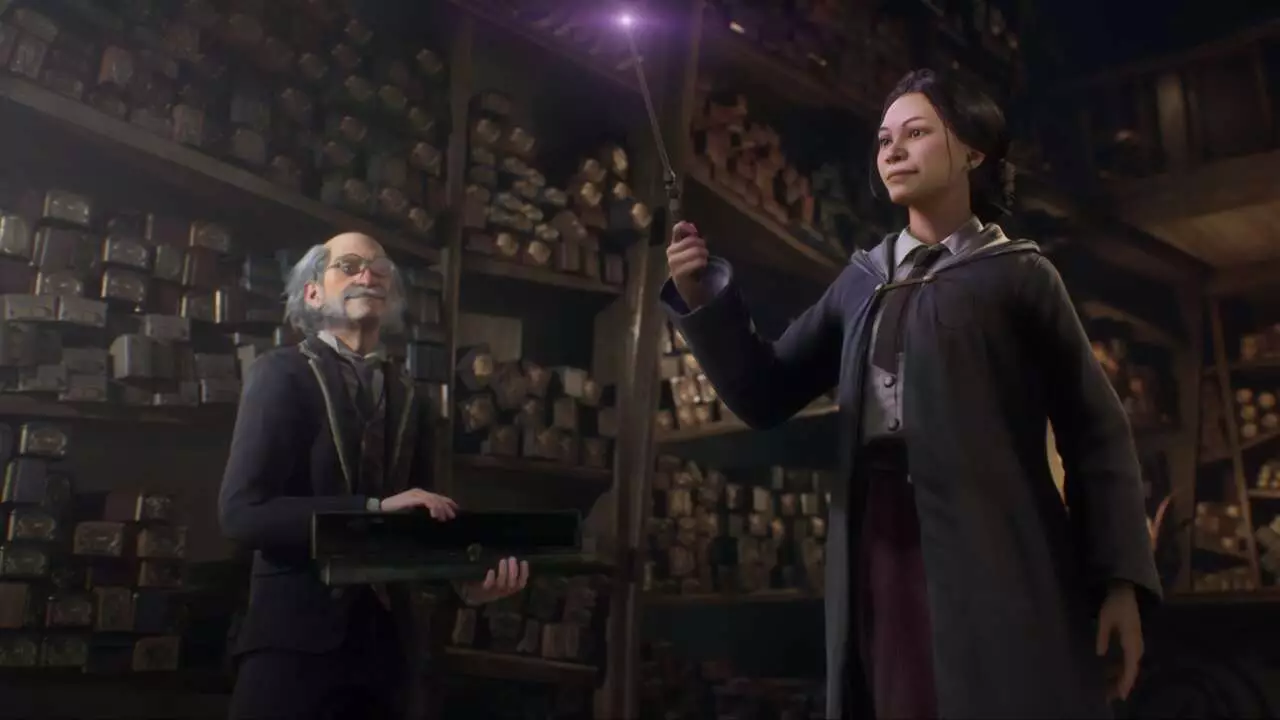The decision to scale back on planned expansions and releases for the wildly successful *Hogwarts Legacy* highlights a strategic evolution within Warner Bros. Discovery’s gaming division. While *Hogwarts Legacy* initially set the gaming world ablaze with its breathtaking open-world environment and engaging storyline, the organization’s latest moves, including the cancellation of both an anticipated Definitive Edition and a compelling expansion pack, showcase the changing landscape in the gaming industry. This pivot appears driven not just by financial prudence but by a broader re-evaluation of what constitutes value in today’s gaming market.
This approach reflects a shift towards leveraging existing intellectual properties rather than risking high development costs on new content that could underperform. In an era laden with costly production cycles, the prioritization of established franchises such as *Harry Potter*, *Mortal Kombat*, and *Game of Thrones* suggests that Warner Bros. is choosing to play it safe in uncertain economic conditions. The message is clear: substantial return on investment takes precedence over experimental expansions.
The Fallout of Cancelled Content
The cancellation of the addition and re-release raises several questions about the future direction for *Hogwarts Legacy*. Initially marked as a flagship project, the ambitious plans hinted at a venue to delve deeper into the wizarding world. With the expansion’s removal, fans may feel a sense of loss—a missed opportunity to explore new narratives that could enrich their gaming experience. If the content was shelved due to concerns about quantity versus pricing, it raises further doubt about the value propositions being offered by game developers today. How can studios justify pricing structures when the content doesn’t align with expectations?
Additionally, the aftermath of this decision extends beyond financial considerations. The cancellation implies a departure from the intricate storytelling that many players seek from role-playing games, particularly those steeped in rich lore like the *Harry Potter* franchise. The players’ emotional investment can be fragile, and sudden changes can lead to discontent. This, combined with existing controversies surrounding J.K. Rowling, creates a divided fanbase and a complex public relations challenge that Warner Bros. will have to navigate.
Looking Forward: A Sequel on the Horizon
Amid the turbulence, there lies a glimmer of hope. Avalanche Software’s commitment to developing a sequel demonstrates that the franchise is not finished yet. With *Hogwarts Legacy* reigning as the best-selling game in the US for 2023, the need to harness that momentum is unmistakable. Warner Bros. is prioritizing innovation within familiar territories, yet the pressure to deliver a sequel that exceeds the original’s achievements looms large.
In this environment, developers must balance fan expectations with personal creative visions, which can be a daunting endeavor. As they aim to build upon the existing foundation, one can only hope that the lessons learned from the cancelled expansion are taken to heart. Will the sequel provide a deeper, more fulfilling experience without succumbing to the pitfalls of past decisions? If handled adeptly, it could redefine the series and secure a lasting legacy for fans and the franchise alike.
The gaming landscape continues to evolve rapidly, and while recent cancellations may seem detrimental, they could also signify an opportunity for Warner Bros. to recalibrate and innovate in uncharted waters. In the world of gaming, adaptation is key, and the tides may just be turning.


Leave a Reply